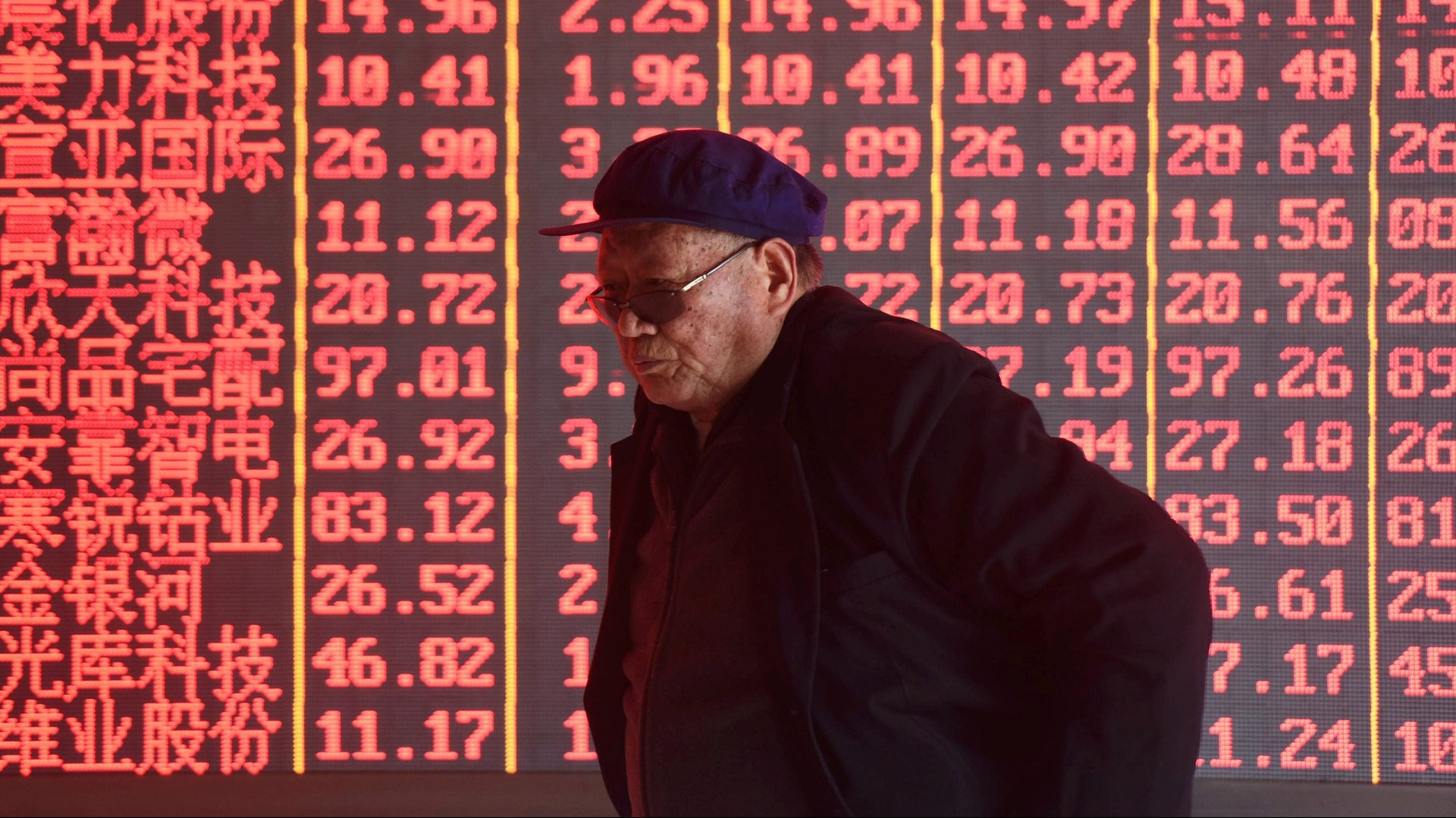China’s answer to Nasdaq will finally let markets do their thing
China’s new stock board dedicated to technology startups begins trading on Monday (July 22)—and might be China’s boldest attempt yet to reform its capital markets.


China’s new stock board dedicated to technology startups begins trading on Monday (July 22)—and might be China’s boldest attempt yet to reform its capital markets.
The Shanghai Stock Exchange’s Science and Technology Innovation Board, dubbed “STAR Market,” comes less less than a year after president Xi Jinping made a surprise announcement (in Chinese) last November on the decision to launch the board. In a departure from rules at the two exchanges in Shanghai and Shenzhen, the new board grants companies and investors greater freedom on IPO pricing and in the listing process. It’s seen as step in Beijing’s determination to persuade its next breakout tech champion to list at home. Alibaba, which had the world’s biggest IPO ever thanks to its massive e-commerce business, and Tencent, China’s social media giant, are listed in the US and Hong Kong, respectively.
Investors should expect more volatility on the new board, which sets no daily price limits in the first five days of a company’s debut, after which there will be a 20% daily limit for share movements in either direction, although trading can be suspended for 10 minutes for extreme movements in the first five trading days. Currently, there is a 44% limit on price gains on debut and a 10% limit for both gains and losses afterwards. It’s also the first time companies that have yet to make a profit—a situation common for many tech darlings—can list in China. Regulators have previously required Chinese companies to have at least three consecutive years of profits, a threshold that has prompted some aspiring startups seeking capital to list elsewhere.
Compared with the lengthy listing process Chinese companies used to go through, which can take two-and-a-half years (in Chinese) on average, the venue’s registration-based system is modeled after exchanges in developed markets, including the Nasdaq and the Hong Kong Stock Exchange. It takes around 70 days (in Chinese) for the whole process, according to an official at the Shanghai Stock Exchange. Part of the reason for the shorter timeline is that the securities regulator, the China Securities Regulatory Commission, has handed over much of the listing approval process to the Shanghai Stock Exchange, the host of the board. The CSRC will verify financial information, while the latter must decide within three months if the company meets the listing standards.
For Beijing, the success of the new board is crucial. Heightened trade tensions between the US and China have led to higher tariffs on hundreds of billions of dollars of US-bound Chinese goods and caught some Chinese tech giants in the crossfire. The government needs to find new tools at home to spur economic growth, especially through technological innovation. Creating a smoother path for tech startups to raise funding from keen investors, who are eying decent returns with looser daily limits on share movements, is expected to help achieve that goal.
The first 25 companies to be listed on the board on Monday range from telecommunications equipment makers to biotech firms. The most expensive one is semiconductor products maker Advanced Micro-Fabrication Equipment, which priced its IPO at 171 times its earnings—while an informal rule of a multiple of no more than 23 has been the norm for IPO pricing. The group as a whole is priced at 53 times earnings, according to Bloomberg.
The high valuations of companies on the new venue have raised concerns on whether it too could become a playground for speculators. In 2015, a stock market rout wiped more than $2.7 trillion in value from the Chinese stock market within a month’s time. The rout was preceded by individual investors pouring money, some of it borrowed, into the market, sending prices to impossible levels. Shenzhen’s ChiNext, an earlier attempt to create a Nasdaq-like offering, but with stricter rules than the new board, still hasn’t recovered (link in Chinese).
Despite the concerns, the overall response to the STAR Market has been positive. Retail investors oversubscribed the IPOs 1,695 times, helping them raise more than $5 billion in total.
“In the future, STAR should be the go-to listing venue for innovative companies in China. Its selection system for companies is very effective, allowing only those with real growth potential in areas such as tech and high-end medical services to trade on it,” said Yang Yan, a fund manager at Atlantis Investment Management, a Hong Kong-based asset management firm.